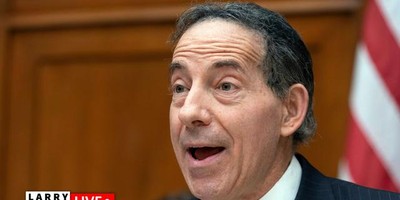The last time the federal government bailed out Chrysler, the Carter administration reached a deal with the carmaker in August 1979, but Congress did not approve the legislation implementing it until December. This time around, the Bush administration dispensed with the legal niceties, loaning billions of taxpayer dollars to Chrysler (and General Motors) without statutory authority.
Although he ran on a promise to respect the legislative branch's constitutional role, Barack Obama applauded the Bush administration's illegal loans, and since taking office he has not sought congressional approval for a bailout that is still operating outside the law. President Obama's high-handed engineering of the pending merger between Chrysler and Fiat, a deal that flouts well-established bankruptcy principles, confirms he is no more committed to the rule of law in this area than his predecessor.
The Obama administration continues to subsidize Chrysler and G.M. (and even the companies that sell them parts) with money that Congress allocated to the Troubled Asset Relief Program (TARP). As the name suggests, the Treasury Department was supposed to use that money to buy troubled assets from financial institutions, the aim being "to restore liquidity and stability to the financial system." There is not a word in the Emergency Economic Stabilization Act, the law that created TARP, about automobile manufacturers.
President Bush acknowledged as much, saying it was inappropriate to use TARP money for loans to G.M. and Chrysler. He changed his mind only after a bill authorizing a carmaker bailout failed to win Senate approval.
On the strength of TARP loans that never should have been made, Obama has dictated one business decision after another. He fired G.M.'s CEO, urged brand consolidation on the company, insisted on Chrysler's merger with Fiat, and demanded the production of cleaner, more fuel-efficient cars, even if that strategy hurts the automakers' bottom lines.
Recommended
CNS News recently asked House Majority Leader Steny Hoyer, D-Md., what law authorizes all this meddling. His answer was revealing.
"The administration clearly believes it does have the authority to use some of the remaining TARP funds for the automobile industry," Hoyer said. "I would be kidding you to mouth some words on that, because I don't know technically where that authority would be."
House Financial Services Committee Chairman Barney Frank, D-Mass., whose panel is supposed to oversee TARP, told CNS News he was "not very well informed" about the president's restructuring plans for the automakers and did not think Congress would vote on them. Frank's counterpart in the Senate, Christopher Dodd, D-Conn., said he "wasn't consulted at all on the process," adding, "I've been reading about it in the papers, basically."
Regarding the government-backed car warranties that Obama unilaterally promised to buyers of G.M. and Chrysler cars, House Budget Committee Chairman John Spratt, D-S.C., said, "I would think that for a government officer to extend a warranty that will create a liability for the government, an act of law would be required. If I were the beneficiary of the warranty, I would certainly want to know the entity that extended it to me had legal authority to grant it." And what if he were, say, a legislator with a constitutional duty to control the use of taxpayer money?
Given how congressional leaders have abdicated their responsibilities, perhaps it's not surprising that the secured creditors who challenged the Obama-imposed Chrysler merger deal were too polite to note that the president lacks statutory authority to intervene in the car industry. "Even assuming that TARP provides the Treasury Department with authority to provide funding to the Debtors," they said, it is neither fair nor legal to let unsecured creditors such as the United Auto Workers get more of their money back than creditors who by statute have a superior claim. But for a president who tramples on the Constitution in his rush to save companies from the consequences of their own bad decisions, the bankruptcy code is no obstacle.

























Join the conversation as a VIP Member